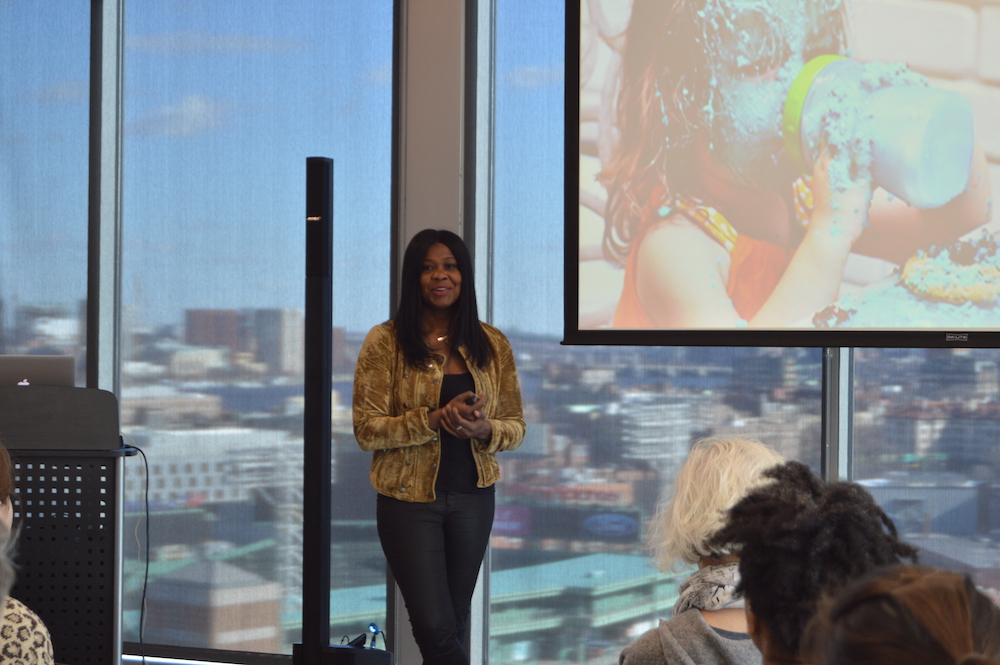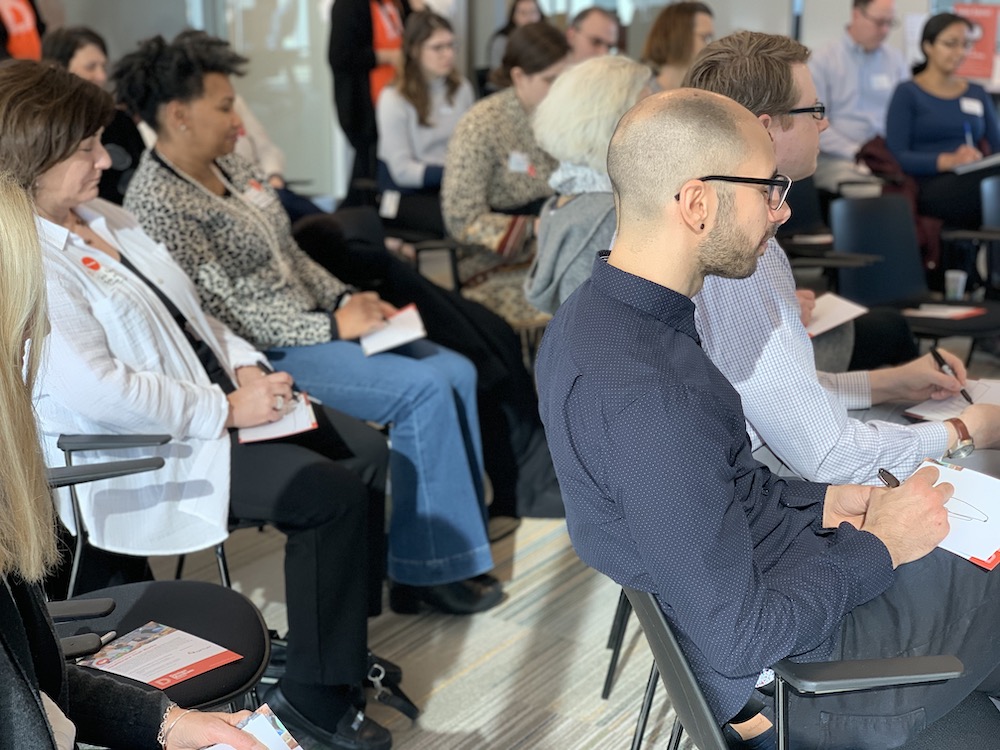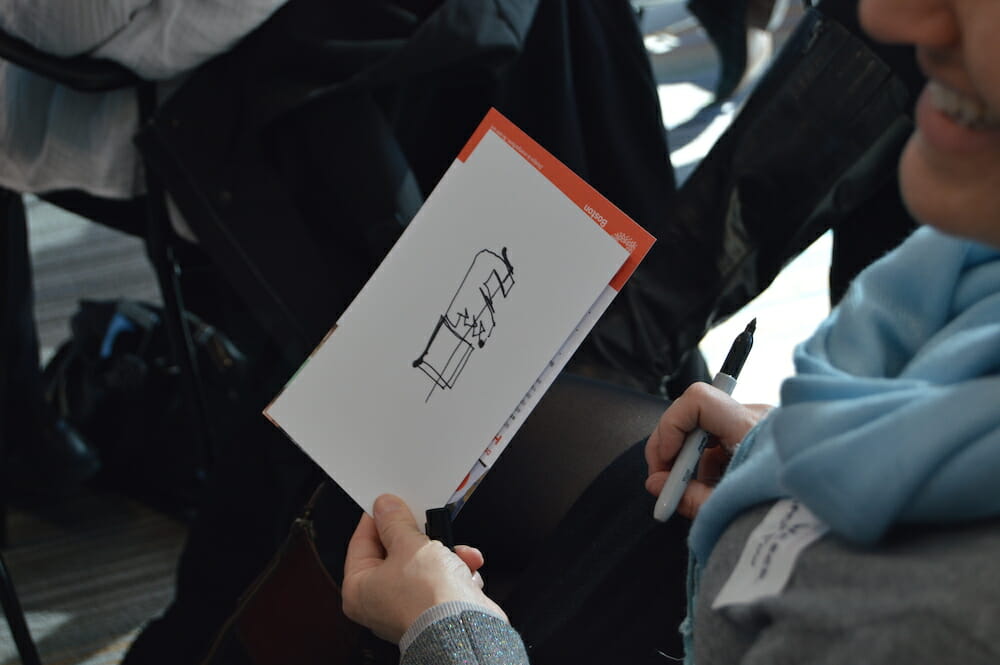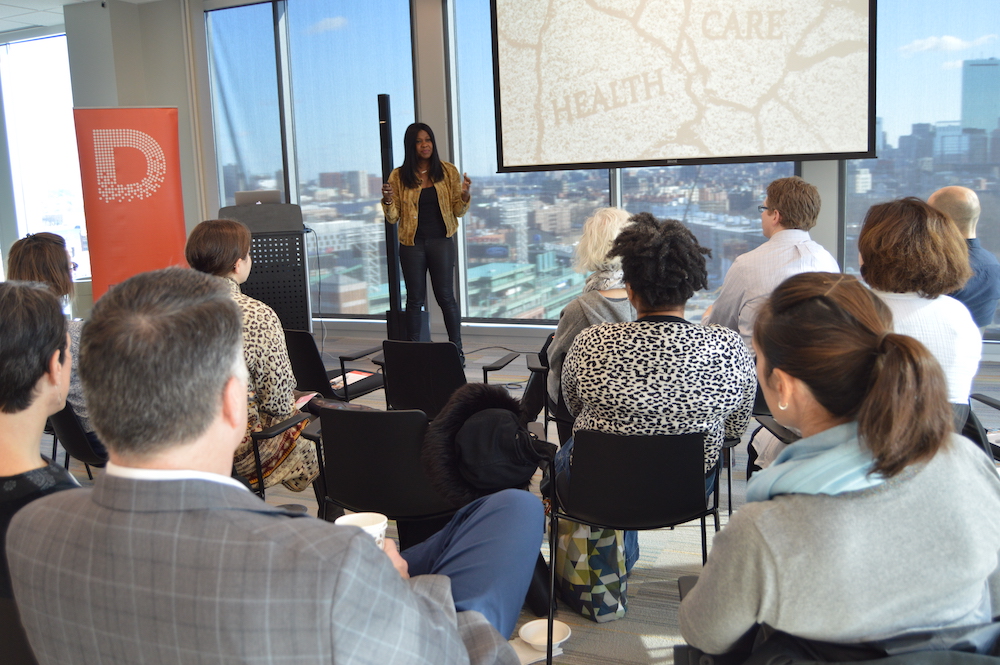Healthcare That Works Recap
Design Museum Mornings • February 2020
By Thais Jacomassi

Robin Glasco welcomed us to Friday with her honest talk about the state of healthcare and how to make it work better for all people.
In February, we welcomed Robin Glasco, co-founder and managing partner of Bambü Global Healthcare Advisors, to our Design Museum Mornings hosted by Optum to discuss responsible and equitable healthcare. With over 25 years of experience in healthcare, Robin dedicates much of her time challenging the status quo embedded in the system by advocating for values of empathy and kindness.
Healthcare is not only an incredibly wide field with specific requests emerging from it, but it is also a very delicate field. Disparities and discrimination surrounding race, gender, and wealth tip the scales of equity. During the presentation, Robin emphasized a large portion of the African American population does not partake in donating blood. She explained how traumatic occurrences such as the Tuskegee Experiment in the 20th century led to distrust between the community and healthcare system. These are valid concerns, however, mistreatment resulted in excluding the voice of an entire population from the healthcare discourse. Robin stressed that health equity only occurs when everyone has access and is apart of the decision-making. This is why campaigns, such as All of Us, encourage people of color to donate blood and become a part of this discourse.

Robin started her talk with a group exercise. She asked all the attendees to close their eyes, and draw a series of shapes without the pen leaving the paper.

Everyone ended up with very different drawings, demonstrating Robin’s main takeaway: we all interpret and act upon directions differently. Healthcare is especially sensitive to this as patients, providers, and administrators all can hear one thing and react uniquely.
The fact of the matter is that healthcare is messy, but we can better understand it if we acknowledge the issues surrounding it. While women make up over half of the population and pay the most contributions in the healthcare system, they are rarely the ones making most of the decisions concerning their health care. As a matter of fact, many women are not taken seriously in concerns of their health because they are often disregarded as emotional. Such stereotypes have done a lot of damage, particularly to African American women who, studies show, are almost 5x more likely to die in childbirth due to improper care. Robin referred to this by sharing the story of her own best friend, who lost her life in childbirth despite being incredibly healthy and having had two successful, prior pregnancies. These situations spell out the importance of bringing empathy into the system and thinking of each patient as an individual rather than an inconvenience.
Although such topics can weigh heavy on our shoulders, Robin maintained a positive outlook and made a point that as designers and design enthusiasts, it is our job to look at these problems and change what we see. Our role is to think of what can be. Other countries, like Singapore and the UK, can be thought of as role models due to how they shape their laws and values in considering healthcare a legal, human right. This was a particularly moving aspect to one of the attendees, a woman working in clinical child research, who said, “It instilled a lot of hope to know that there are people achieving and striving for health equity. I really liked [Robin’s] practical and down-to-earth standpoint on the situation.” In a final, empowering point, she pointed to the reality of how the power for change lies in the hands of consumers and patients. We must realize this opportunity and utilize that power.
Robin answered questions at the end of Design Museum Mornings, where multiple people shared their own personal stories with the healthcare system.
